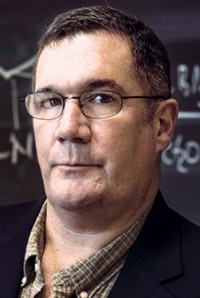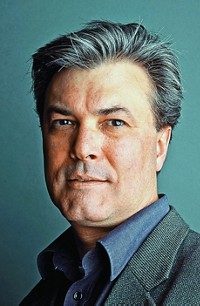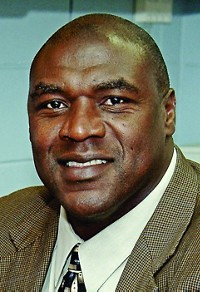Advertisement
Grab your lab coat. Let's get started
Welcome!
Welcome!
Create an account below to get 6 C&EN articles per month, receive newsletters and more - all free.
It seems this is your first time logging in online. Please enter the following information to continue.
As an ACS member you automatically get access to this site. All we need is few more details to create your reading experience.
Not you? Sign in with a different account.
Not you? Sign in with a different account.
ERROR 1
ERROR 1
ERROR 2
ERROR 2
ERROR 2
ERROR 2
ERROR 2
Password and Confirm password must match.
If you have an ACS member number, please enter it here so we can link this account to your membership. (optional)
ERROR 2
ACS values your privacy. By submitting your information, you are gaining access to C&EN and subscribing to our weekly newsletter. We use the information you provide to make your reading experience better, and we will never sell your data to third party members.
Synthesis
ACS Award In Organometallic Chemistry
by Stephen K. Ritter
January 28, 2013
| A version of this story appeared in
Volume 91, Issue 4
Sponsored by Dow Chemical Co. Foundation
Most people are familiar with nitrous oxide, N2O, better known as laughing gas for the euphoric effects it produces when inhaled. For the University of Chicago’s Gregory L. Hillhouse, it’s just one of the exotic molecules he and his research group like to work with. Hillhouse is being honored for his collective work in manipulating small nitrogen-containing compounds via low-coordinate nickel and other organometallic complexes to carry out atom-transfer chemical reactions.
“Hillhouse has an immense passion for science and discovery, and a strong commitment to mentorship,” comments fellow organometallic chemist T. Don Tilley of the University of California, Berkeley. “His contributions to the field are evident not only in the beautiful compounds he has made and studied, but also in the high-quality research subsequently produced by the many former coworkers he has inspired.”
Hillhouse is recognized as a leading authority on reactions of N2O, N3R, HN=O, HN=NH, and other molecules mediated by nickel and other group 10 metals. His work includes the first examples of N2O-based oxidations to give metal alkoxides or aryloxides and related conversion of nickel alkyls to nickel amides via nitrene transfer from N3R. The latter work led to the discovery and mechanism determination of reductive elimination reactions that form new C–O and C–N bonds.
His team’s report of the first group 10 terminal imido complex, followed by reports of related carbenes and phosphinidenes, helped spark growth in the chemistry of multiple bonding in late-transition-metal compounds. These molecules exhibit catalytic and stoichiometric group transfer, for example, in their reactions with olefins to produce aziridines and cyclopropanes or with carbon monoxide to make isocyanates and ketenes.
One of the Hillhouse group’s latest discoveries is the first two-coordinate transition-metal imido complex that is highly active for olefin C–H aminations. Reactive substrates such as carbon monoxide and ethylene readily add across the Ni=N bond, resulting in the transfer of the imido group to the substrate to form isocyanates and vinylamines, respectively.
Hillhouse, 57, received a B.S. in chemistry in 1976 from the University of South Carolina, Columbia, and a Ph.D. in chemistry in 1980 from Indiana University. After postdoctoral work at California Institute of Technology, he joined the faculty at the University of Chicago.
Among his awards, Hillhouse received the 2011 Norman Maclean Faculty Award from the University of Chicago Alumni Association for his contributions to teaching and student life. He also received the university’s 2009 Starkey Duncan Award for enriching the lives of student athletes. Hillhouse is the 2013 chair of the ACS Organometallic Subdivision, served as the 2012 chair of the Organometallic Chemistry Gordon Research Conference, and has served on National Science Foundation chemistry panels and as chair of ACS’s Southern Indiana Section.
Hillhouse is not a one-dimensional character, as his eclectic assortment of hobbies attests. According to colleagues, Hillhouse’s culinary skills are legendary. His height gives away that he once was a perennial intramural basketball all-star selection at the University of Chicago. Hillhouse also was an honorary member of the World Famous Lawn Rangers, a precision lawn-mower drill team that marched in the 2009 inauguration parade.
Hillhouse will present the award address before the ACS Division of Inorganic Chemistry.






Join the conversation
Contact the reporter
Submit a Letter to the Editor for publication
Engage with us on Twitter